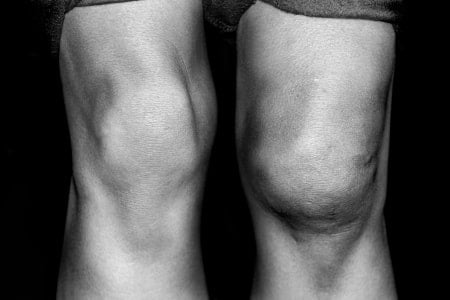
Runners are always concerned about how long they will be able to continue running. Runners can’t imagine not running. Running has long been a source of enjoyment and physical exercise for many. In the back of your mind, many of you wonder if running is causing damage or arthritis of the knee.
Perhaps your friends keep telling you that you’re ruining your knees? Perhaps your physician even told you to stop running to protect your knees. Now you’re confused … or worse, you stop running!
Running does not cause osteoarthritis.
Wait, what! It’s true.
Osteoarthritis is NOT really a wear and tear issue. Our knees don’t wear out because they’re rubbing the cartilage off of the bones. Osteoarthritis is far more complicated than that. It needs to be thought of in terms of genetic risk, and biology. In this post, I went into far more detail when I discussed whether or not people should continue to exercise with osteoarthritis. That article is worth bookmarking and coming back to.
A recent publication revealed that running didn’t cause knee arthritis to worsen, AND, many runners’ knees felt better because they continued to run.
Arthritis, by definition, is a loss of cartilage in the knee. Arthritis can be caused by:
- trauma
- genetic predisposition (#1 cause)
- meniscus tears
- various diseases (Lupus, Rheumatoid)
- infections
The pain from osteoarthritis isn’t necessarily due to the loss of cartilage. There are many runners out there with X-rays that show bone-on-bone changes. Yet, other runners have mild arthritis and more significant pain. Why is that?
As you can see, the are many potential sources of pain in and around a knee that has osteoarthritis. And when you consider the biological issues going on it gets even more complicated.
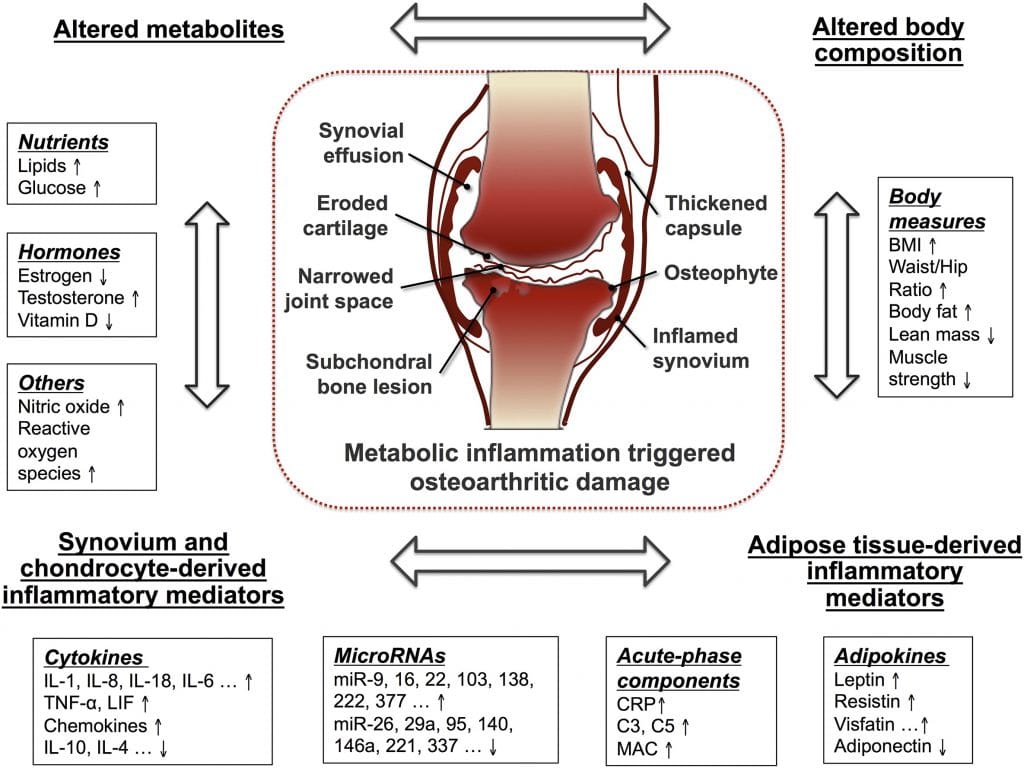
As you can see, this topic is far more complicated than the thought of sandpaper rubbing away wood. Sadly, this mechanistic view is still well entrenched in people’s minds. Pain is often mediated by chemicals, proteins, or biomarkers. And many of those more painful proteins diminish in concentration after your run! In addition, COMP, which is a biomarker considered to be indicative of cartilage degeneration also diminishes after a run. That’s is perhaps why this study showed that many runners with arthritic knees felt better when they returned to running.
Runners pound on their knees day in and day out. So it makes sense that many believe that they are doing harm to themselves with running. Good news… it’s probably not true. Running does not appear to cause osteoarthritis of the knee. After a run, the cartilage will deform or change shape, but it appears to repair itself well under normal circumstances. Interestingly, in runners who have osteoarthritis, running might, repeat might slow the progression of the disease.
The research on whether or not running causes or worsens arthritis of the knee has been firmly answered. Running does not appear to cause or worsen the presence of osteoarthritis.
Running does not appear to cause knee arthritis.
As discussed in the video below… it seems that our cartilage actually responds favorably to the cyclical (weight-bearing) loading that running causes.
Runners actually have a lower incidence of osteoarthritis of the knee and hip when compared to non-runners. Even when other variables are controlled … e.g.. most runners tend to be thinner and “healthier”.
When compared to people who walk the same distance, it turns out that a runner will put the same amount of force on the knee for a given distance. That’s because walking involves more steps than running, and runners have a longer stride — so the two cancel each other out.
Now, a runner might succumb to any number of other knee injuries that might sideline them, but at least for now, the science seems to suggest that running in and of itself will not cause arthritis of the knee, nor result in worsening arthritis if the process has already started.
How much can I run?
This is the key question. You may not be able to be competitive if you have an arthritic knee. You may also have mild pain and perhaps some swelling too. But that is not a reason to stop. Runners need to find their happy pace. You should determine what your threshold is. Perhaps you used to run 12-15 miles on a Sunday. Perhaps you used to run 8:10 miles. Those days might be over. But I would rather be running 6 miles at a 1o min pace than not run at all. Play around with your distance, hills, and your pace to find a sweet spot that enables you to keep running.
Besides it makes no sense to stop running to “protect” your knees while at the same time increasing your risk for heart disease, hypertension, stroke, dementia, and type 2 diabetes. Running associates with a decrease in all-cause mortality. So if you are able to keep running or jogging– keep going.
If the knee pain is too severe and you can’t run
If you have severe pain when running then you should see a sports medicine physician. Perhaps you should see one who also runs. We understand the runner’s mindset. In many situations, we are able to offer you surgical procedures designed so that you can remain active after surgery. Most runners will not be able to run after a knee replacement. But many runners can get back to running after a high tibial osteotomy.

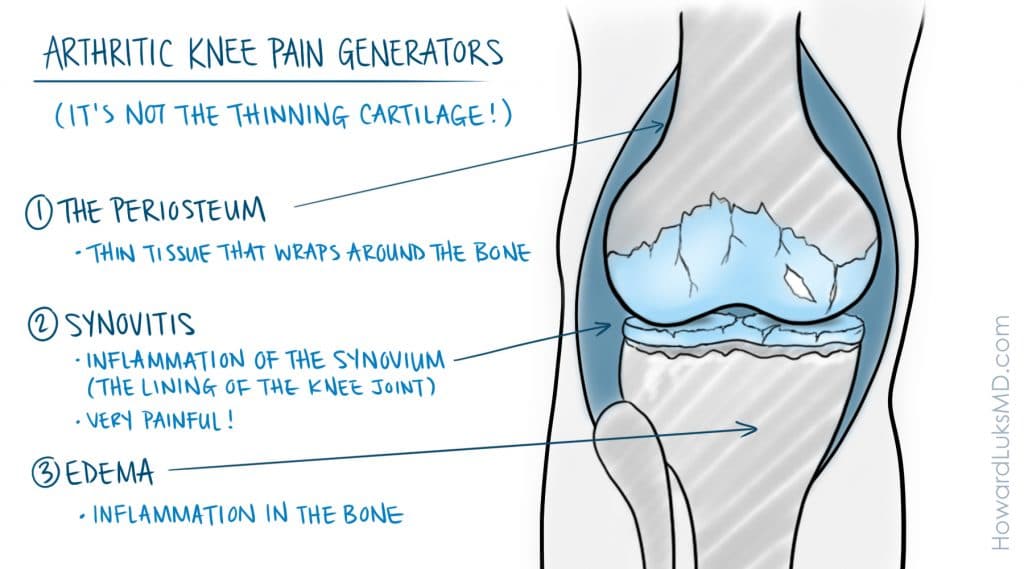
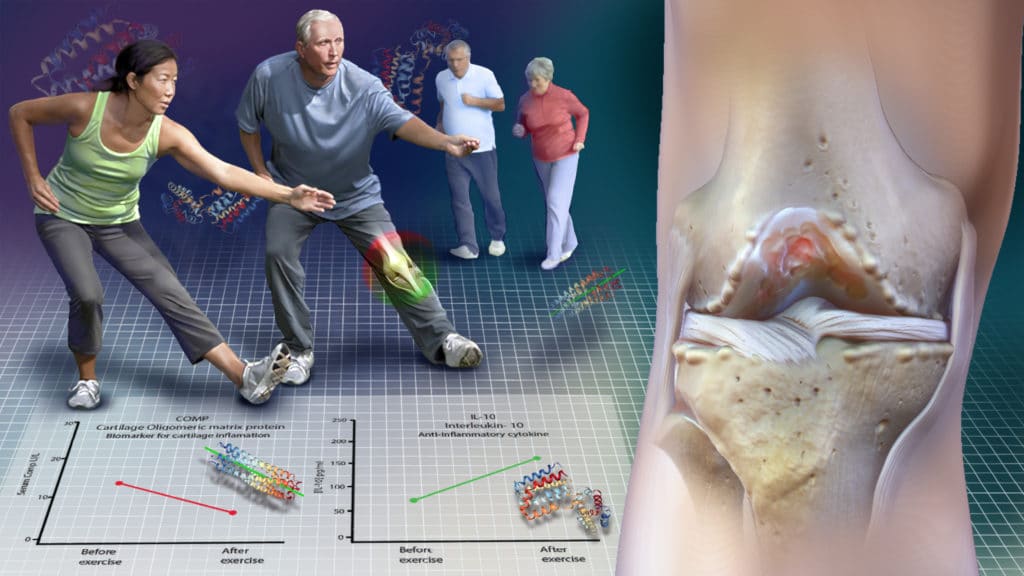


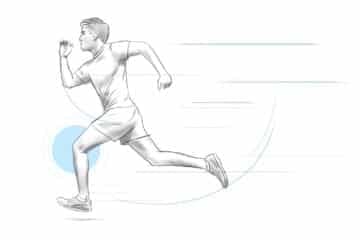


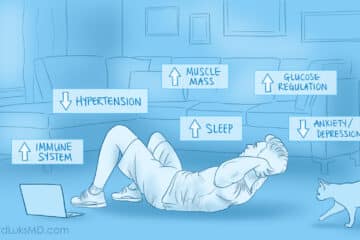








Great share Dr. Howard! I have since started running on a trail to prevent some knee pain. I find less stress on the knee afterwards.. Good to know that Running does not appear to cause knee arthritis.